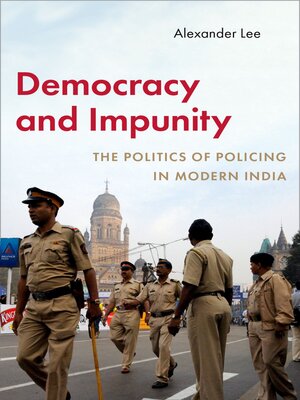Democracy and Impunity
ebook ∣ The Politics of Policing in Modern India · Modern South Asia
By Alexander Lee

Sign up to save your library
With an OverDrive account, you can save your favorite libraries for at-a-glance information about availability. Find out more about OverDrive accounts.
Find this title in Libby, the library reading app by OverDrive.



Search for a digital library with this title
Title found at these libraries:
| Library Name | Distance |
|---|---|
| Loading... |
India faces a crisis of criminal impunity. Crimes against the poor and marginalized go unprosecuted, while crimes committed by the rich and influential are ignored in return for bribes or favors. Those who have enough money to pay the police, or enough power to influence them, can quite literally get away with murder. In Democracy and Impunity, Alexander Lee examines the politics of law enforcement in India and why the police perform so poorly across multiple dimensions—a level of performance that is exceptional even for similar developing democracies. Lee shows that high levels of impunity in India are the result of two interdependent policy choices—the Indian police are severely under-resourced and have very low autonomy in relation to senior members of the political elite. While Lee focuses on India, his account sheds light on how nations can find themselves in the "policy trap" of low police resources and low police autonomy, and why they find it so hard to get out of this equilibrium. He also explains why some politicians find it in their interests to have a weak and tightly controlled police force, why many police officers work with these politicians, and discusses specific reforms that could alleviate the impunity crisis.







